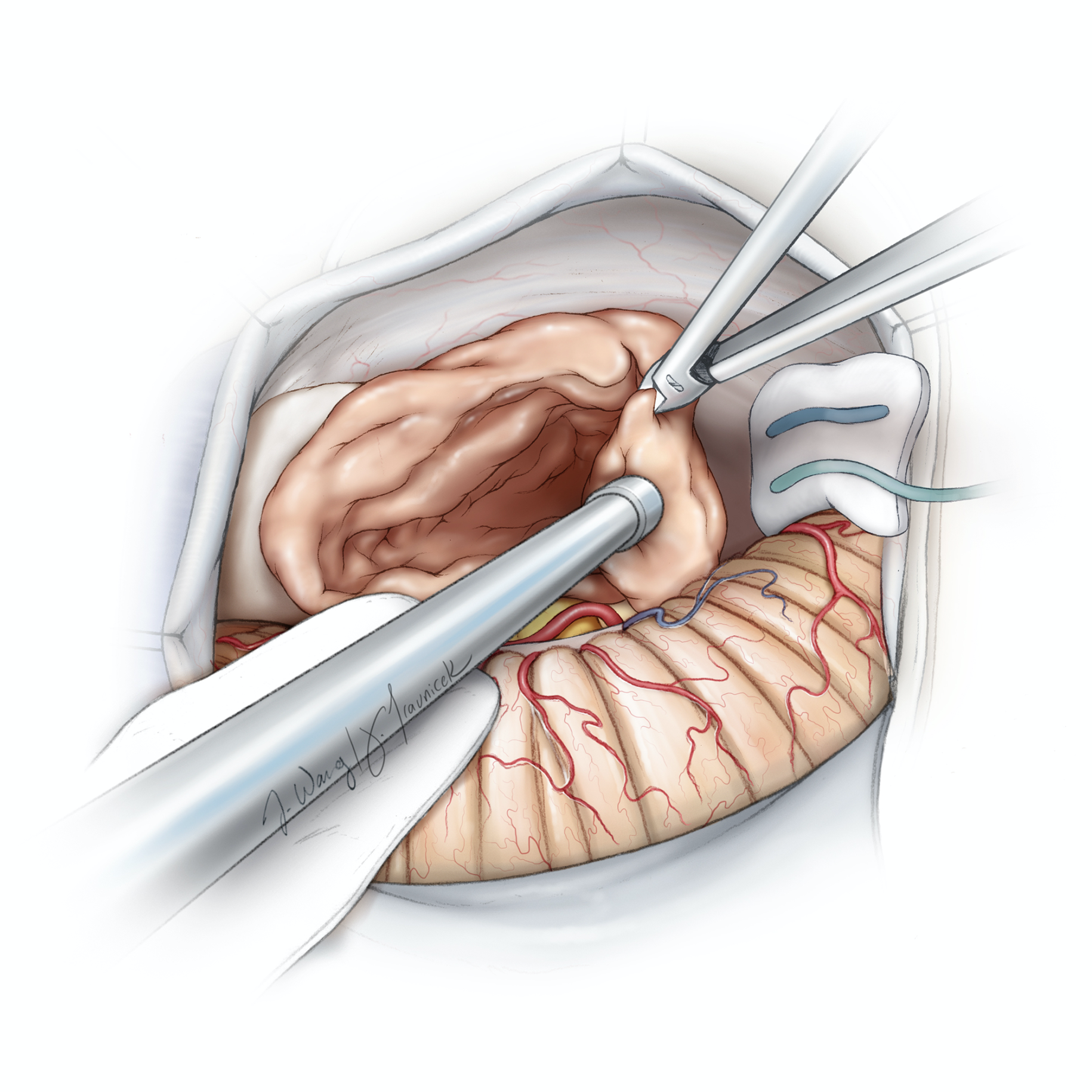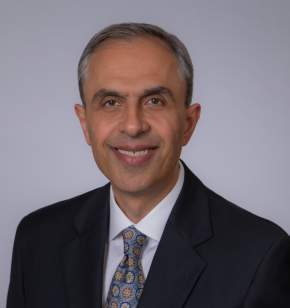Navigating Acoustic Neuroma Surgery: Guide from Preparation to Recovery


Acoustic neuroma is a benign tumor that grows on the vestibulocochlear nerve around the base of the brain. Left untreated, it can affect your hearing and balance. In rarer cases, the tumor can grow large enough to impact nearby cranial nerves and cause facial muscle weakness, swallowing difficulties, and potentially life-threatening complications.
In many cases, acoustic neuroma surgery may be needed to remove the tumor. While the prospect of surgery can be overwhelming and intimidating, understanding the journey ahead can offer reassurance and facilitate a smoother experience for patients and their families.
Preparing for Surgery
Before your surgery date, your neurosurgeon will conduct necessary tests to determine if you are a qualified candidate for surgery for acoustic neuroma. Before you undergo surgery, you may need to prepare for the following:
- Meet Your Anesthesiologist: They will check your heart and lungs to determine if you are fit to undergo anesthesia during your surgery.
- Medication and Diet: If you are taking medications, your doctor will advise you on whether you should temporarily stop days before your surgery. They advise you against eating or drinking after midnight of the day of your surgery.
- Imaging and Hearing: Some tests may be conducted before your surgery. Your surgical team will use these to assist them during the treatment process.
During Surgery
You will be placed under general anesthesia before the surgical procedure begins. The surgical team will make the necessary incisions behind your ear depending on the appropriate craniotomy approach for your condition.
The entire procedure typically takes 6-8 hours to complete. This depends on factors such as the tumor size, the chosen approach, and the complexity of your acoustic neuroma.
Following surgery, you will be moved to the Intensive Care Unit (ICU) for comprehensive monitoring. If there are no complications, you will be transferred to the surgical floor to recuperate. Most patients stay around three to five days to recover in the hospital.
During this time, medical staff will provide prescription pain medication to manage post-surgical discomfort.
They will also assist you with light walking exercises to help you regain or adjust your sense of balance. It may take 1-2 days before you can eat regular food, so your diet may be adjusted accordingly.
Why should you have your surgery with Dr. Cohen?
Dr. Cohen
- 7,500+ specialized surgeries performed by your chosen surgeon
- More personalized care
- Extensive experience = higher success rate and quicker recovery times
Major Health Centers
- No control over choosing the surgeon caring for you
- One-size-fits-all care
- Less specialization
For more reasons, please click here.
Surgery Risks and Complications
While many patients manage to recover without complications, some may experience complications, such as:
- Leaking cerebrospinal fluid from your surgical wound or nose
- Hearing loss
- Facial muscle weakness
- Complete or partial facial muscle function loss
- Difficulty fully closing your eyes
- Facial numbness
- Poor balance
- Chronic headaches
- Meningitis
- Stroke
Some of these complications may be resolved in weeks or months after recovery. However, in rare cases, these complications may be permanent.
If you experience severe complications during your recovery, schedule an appointment with your doctor or seek immediate medical care.
Post-Surgery Recovery
The recovery process varies between patients as a full recovery can take any time, from weeks to months, after the procedure. Your doctor will schedule your first follow-up appointment two weeks after surgery, at the latest, and schedule additional consultations depending on your progress.
During follow-up consultations, your doctor will check your recovery and determine if you need to continue taking your prescribed medications. They may also request imaging to assess your recovery progress.
Post-Surgery Recovery Risks and Prevention
All types of surgical procedures have some level of risk. This is why it’s crucial that you follow up with your doctor to check for any complications during your recovery period. The most common surgical complications include:
- Bleeding around the surgical area
- Infection (symptoms such as fevers, swelling, drainage, or pus leaking from the surgical wounds)
Additionally, post-surgical risks following acoustic neuroma surgery include:
- Facial weakness
- Eye problems
- Partial or complete hearing loss
- Balance issues
- Fatigue
If you experience any of these symptoms as new, call your neurosurgeon and seek immediate medical attention. Mobility is recovered through regular exercises and rehabilitation.
Best Care Practices During Your Recovery
Wound Care
Patients with dissolvable sutures do not require removal, as these will eventually dissolve. For patients with staples and regular sutures, you must have a nurse remove them around 10 days after surgery. To minimize the risk of infection:
- Keep the incision clean and avoid touching it with unclean hands.
- You can take a shower 3 days after your surgery but do not brush over the incision for at least 2 weeks. During a shower, let the water run over the incision. Naturally, you can scrub anywhere on your head as usual and let the water run over the incision.
- Placing wound dressing on the head can be very annoying and can psychologically affect recovery negatively.
- Avoid strenuous outdoor activities, especially with direct sun exposure.
- Avoid submerging your wound, such as going swimming or taking a bath.
- Do not get hair coloring or treatments for four weeks after surgery.
- Use the palm of your hand to gently scrub the wound with simple soap to loosen the scabs about two weeks after surgery.
Pain Management and Medication
- Take prescription pain medication as needed. If your doctor hasn’t provided a prescription, you can take over-the-counter pain relievers as needed.
- Avoid anti-inflammatory pain relievers unless approved by your doctor. Choose pain relievers like acetaminophen (paracetamol) instead of ibuprofen.
- Sleeping with your head elevated can minimize pain and swelling.
- Follow your doctor’s instructions on anti-seizure or any other medicine. If you’re taking maintenance medication, inform your doctor before your surgery.
Activity Monitoring
- For the first two weeks after your surgery, avoid strenuous activities. This includes housework, sexual activity, and exercise.
- Avoid driving, returning to work, and air travel without your doctor’s approval.
- Light walking exercises up to 45 minutes once or twice daily can help with recovery.
Dizziness is typical and can last for several weeks. Your balance may also be initially impaired, but many patients manage to adjust through regular walking and keeping an active lifestyle. If you have difficulty with balance and coordination, your doctor may recommend physical therapy.
When To Call Your Doctor
Contact your doctor or seek immediate medical attention if you experience any of the following:
- Any symptom of post-surgical complications
- A persistent high fever that doesn’t go away with Tylenol
- Signs of wound infection or drainage
- Increased drowsiness, muscle weakness, vomiting
- Facial numbness, hearing loss, visual problems, general confusion
- Seizures
Key Takeaways
Navigating acoustic neuroma surgery can be an understandably challenging process. However, by understanding the various surgical approaches, potential complications, and appropriate post-operative care, patients and their families can feel better equipped to make the best decisions possible throughout the journey, from initial consultation to recovery.











